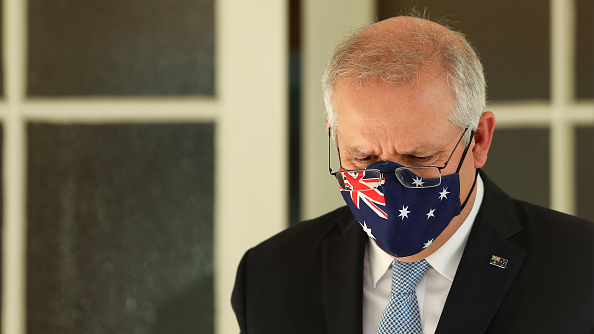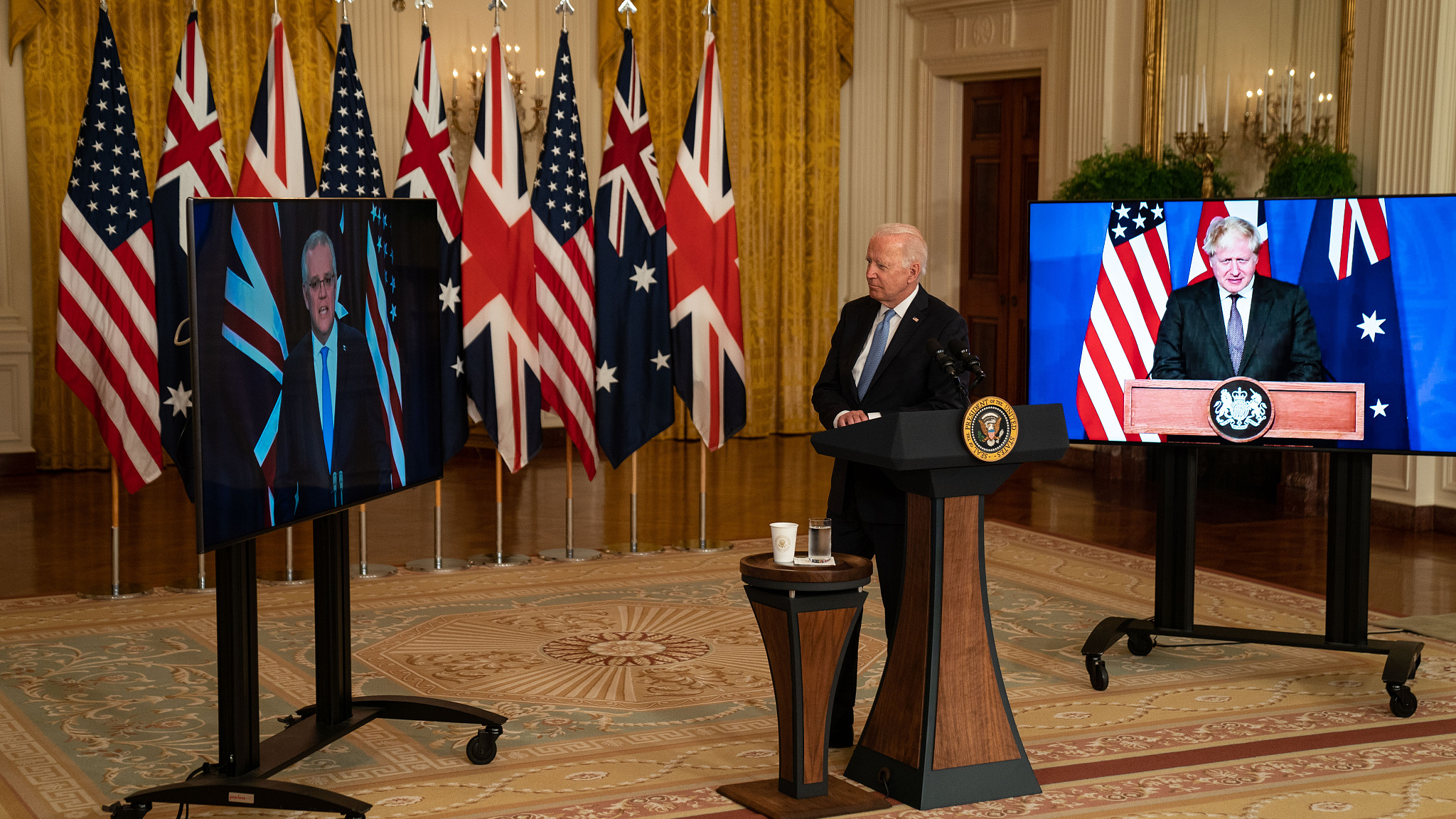
Australian Prime Minister Scott Morrison addresses the media during a press conference at Kirribilli House in Sydney, Australia, July 08, 2021. /Getty
Australian Prime Minister Scott Morrison addresses the media during a press conference at Kirribilli House in Sydney, Australia, July 08, 2021. /Getty
Editor's note: Daryl Guppy is an international financial technical analysis expert. He has provided weekly Shanghai Index analysis for Chinese mainland media for more than a decade. Guppy appears regularly on CNBC Asia and is known as "The Chart Man." He is a national board member of the Australia China Business Council. The article reflects the author's opinions and not necessarily the views of CGTN.
Diplomacy is what? In some ways, it's a difficult question to answer. It's far easier to define what diplomacy is not. Australia's Prime Minister Scott Morrison has given a master class in this in recent weeks. His method of diplomacy has attracted a public rebuke from the U.S. president and an unprecedented undiplomatic response from the French president.
French President Emmanuel Macron said: "The AUKUS deal was very bad news for France – but not just for France, because I think it's very bad news for the credibility of Australia, and very bad news for the trust that great partners can have with the Australians. I think this is detrimental to the reputation of your country and your Prime Minister."
President Joe Biden told Macron that: "I was under the impression that France had been informed long before that the deal was not going through. I honest to God did not know you had not been (informed)."
Unchastened, Prime Minister Morrison's response was telling, insisting that the Americans had been fully informed and shifting blame to American officials for not keeping the president updated. Many found this unbelievable as a decision to allow access to American nuclear submarine technology could only have been taken by a fully informed president.
Political mileage will be made from this ham-fisted blundering but that misses a significant issue. The damage done to Australia's standing in the Indo-Pacific region was further intensified with the G20 meetings. The French president, who represents an anchor in the North Atlantic Treaty Organization (NATO) alliance and President Biden, the nominal leader of NATO, were forced into a public bridge-building exercise as a result of Australia's diplomatic blunders.
Nations from the Association of Southeast Asian Nations (ASEAN) region watched on with incredulity as they ratcheted down the level of credibility they assigned to Australia and its promises. What is at risk is not the $90 billion French submarine contract. What is at risk is the status and influence of Australia and its actions. Its seat at the table in Europe and at regional ASEAN organizations has been deeply tarnished.
Many believe that Australia simply cannot be trusted. This belief comes not primarily from the overturning of the French contract, but in the way the issue was handled.
Macron stated the core issue firmly and directly. "I don't think (Morrison) lied. I know he lied," he told reporters.
The Australian prime minister has quickly developed a reputation as a person whose words cannot be trusted, and who will say and do anything to secure short-term political advantage, with scant concern for the consequences.
To what extent does the action of a leader reflect the action of the nation? The answer is found in Australian politics where the response to French concerns has been dismissive and at times puerile.

U.S. President Joe Biden announces that the U.S. will share nuclear submarine technology with Australia from the East Room of the White House, U.S., September 15, 2021. /VCG
U.S. President Joe Biden announces that the U.S. will share nuclear submarine technology with Australia from the East Room of the White House, U.S., September 15, 2021. /VCG
Responses include "The French will get over it." The Australian Deputy Prime Minister Barnaby Joyce trivialized the significance of the issue saying, "We didn't deface the Eiffel Tower." Australian Defence Minister Peter Dutton said Australia reserved the right to take decisions in the national interest but left hanging the implication that lying was an acceptable part of this process.
Whether the decision was right or wrong is not the relevant question. The most significant consequence is the erosion of trust at a leadership, national and regional level.
The next time Australian representatives sit around the table at an ASEAN conference, or an Asia Pacific Economic Cooperation (APEC) forum, the participants can legitimately ask of Australia "Are they telling the truth?" and "Can they be trusted?"
This is a very different question from that being asked just a few months ago. Then the concern was that Australia was a spokesman for the United States and that Australia did not have a foreign policy engagement agenda significantly independent of America. That question still remains, but it has been joined by questions around trust.
After all, if your strongest allies are questioning your veracity then what value can be assigned to your words in dealings with those who are not formal allies? The motivation for Australia's actions will inevitably be more closely examined. Offers of aid will be evaluated against a background of deceit. Is there a hidden agenda that is obscured by lies willingly told?
The position taken in discussions around trade, open borders, digital standards – the bread and butter of Regional Comprehensive Economic Partnership (RCEP) – will be treated with caution because trust has been eroded. Australia's creation of AUKUS and its switch to nuclear submarines are designed to enhance the country's influence in the ASEAN region. Instead, the clumsy handling of this has reduced Australian influence because of the way it has eroded trust.
Australia, it seems, has failed to understand it's not what you say, but how you say it that enhances regional influence. Australian diplomats face an unenviable task to reduce the trust deficit and restore a sense of reliability to Australia's relations with ASEAN.
(If you want to contribute and have specific expertise, please contact us at opinions@cgtn.com.)

